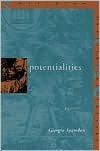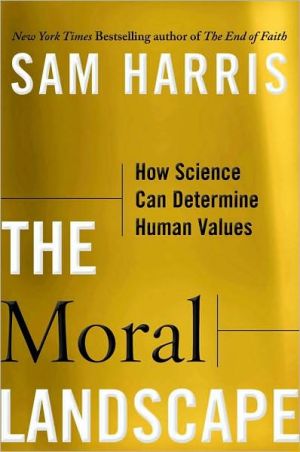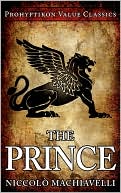Potentialities: Collected Essays (Meridian: Crossing Aesthetics Series)
“Agamben has been attracting attention recently in the English-speaking world, thanks to the increasing availability of his work in translation. This volume is indicative of Agamben’s broad range of interests. . . . Despite this range of interests, however, a sustained commitment to certain theoretical issues—particularly language and history—lends the volume a coherence. . . . Daniel Heller-Roazen’s introduction does a nice job of outlining the philosophical program that motivates these...
Search in google:
This volume constitutes the largest collection of writings by the Italian philosopher Giorgio Agamben hitherto published in any language. With one exception, the fifteen essays, which reflect the wide range of the author’s interests, appear in English for the first time.The essays consider figures in the history of philosophy (such as Plato, Plotinus, Spinoza, and Hegel) and twentieth-century thought (most notably Walter Benjamin, but also Heidegger, Derrida, Deleuze, the historian Aby Warburg, and the linguist J.-C. Milner). They also examine several general topics that have always been of central concern to Agamben: the relation of linguistic and metaphysical categories; messianism in Islamic, Jewish, and Christian theology; and the state and future of contemporary politics. Despite the diversity of the texts collected here, they show a consistent concern for a set of overriding philosophical themes concerning language, history, and potentiality.In the first part of the book, Agamben brings philosophical texts of Plato and Benjamin, the literary criticism of Max Kommerell, and the linguistic studies of J.-C. Milner to bear upon a question that exposes each discipline to a limit at which the possibility of language itself is at stake. The essays in the second part concern a body of texts that deal with the structure of history and historical reflection, including the idea of the end of history in Jewish and Christian messianism, as well as in Hegel, Benjamin, and Aby Warburg. In the third part, the issues confronted in the first and second parts are shown to be best grasped as issues of potentiality. Agamben argues that language and history are structures of potentiality and can be most fully understood on the basis of the Aristotelian theory of dynamis and its medieval elaborations. The fourth part is an extensive essay on Herman Melville’s short story “Bartleby, the Scrivener.”
Editor's NoteEditor's Introduction: "To Read What Was Never Written"1Pt. ILanguage1The Thing Itself272The Idea of Language393Language and History: Linguistic and Historical Categories in Benjamin's Thought484Philosophy and Linguistics625Kommerell, or On Gesture77Pt. IIHistory6Aby Warburg and the Nameless Science897Tradition of the Immemorial1048Se: Hegel's Absolute and Heidegger's Ereignis1169Walter Benjamin and the Demonic: Happiness and Historical Redemption13810The Messiah and the Sovereign: The Problem of Law in Walter Benjamin160Pt. IIIPotentiality11On Potentiality17712The Passion of Facticity18513Pardes: The Writing of Potentiality20514Absolute Immanence220Pt. IVContingency15Bartleby, or On Contingency243Notes275Index of Names303
\ From the Publisher"Agamben has been attracting attention recently in the English-speaking world, thanks to the increasing availability of his work in translation. This volume is indicative of Agamben's broad range of interests. . . . Despite this range of interests, however, a sustained commitment to certain theoretical issues—particularly language and history—lends the volume a coherence. . . . Daniel Heller-Roazen's introduction does a nice job of outlining the philosophical program that motivates these essays, and his translation in general is to be commended for its elegance. Upper-division undergraduates through faculty and researchers."—Choice\ \ \








